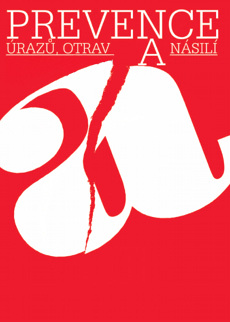Spokojenost jihočeských pedagogů s výukou Úmluvy o právech dítěte
Satisfaction of South-Bohemian teachers with education concerning the Convention on the Rights of the Child
Jana Stejskalová
Jihočeská univerzita v Českých Budějovicích, Zdravotně sociální fakulta, katedra sociální práce
Korespondenční autor: Jana Stejskalová (jstejskalova@zsf.jcu.cz)
ISSN 1804-7858 (On-line)
Full verze:
Submitted:2. 9. 2012
Accepted: 5. 11. 2012
Published online: 31. 12. 2012
Summary
In teaching rights of children, not only parents but also teachers should play an important role. The task of adults is not only to protect children but also to help them in the way to their autonomy and conduct them to understanding their rights. The target of the article is to outline responses of respondents-teachers concerning their satisfaction with contents of teaching programmes focused on the implementation of the Convention on Rights of the Child and on the participation of children in schools. The results were obtained from a research performed at two South-Bohemian primary schools and compared with results of Spanish and Italian authors. The respondents-teachers rather agree with the opinion that the children should be free to tell anything they want. In contrast, they rather disagree with a statement that opinions of children are too infantile and thus, they should not be taken into account. The answers indicate that teachers have relatively wide possibilities of free adjustment of lessons depending on the child needs. In opinions of teachers, the most frequent reactions of parents to child problems in the school are attempts to introduce remedial actions in cooperation with the school, the second most frequent reaction being the fact that the parents search for errors in second subjects, particularly in teachers and school.
Keywords: measure of satisfaction of teachers – teaching of the Convention on rights of the Child – participation
Souhrn
Ve výuce dětských práv u dětí by měli sehrát významnou roli nejen rodiče, ale i pedagogové. Úkolem dospělých je dítě nejen chránit, ale především mu pomoci na cestě k jeho autonomii, vést ho k pochopení svých práv. Cílem článku je nastínit odpovědi respondentů-pedagogů týkající se jejich spokojenosti s obsahem výuky zaměřujícím se na implementaci Úmluvy o právech dítěte, na participaci dětí ve školách. Výsledky jsou získané z průzkumu na dvou jihočeských základních školách a srovnávají se s výsledky španělských a italských autorů. S názorem, že by děti měly mít svobodu říci cokoli, co chtějí, respondenti-učitelé spíše souhlasí. Naopak spíše nesouhlasí s tvrzením, že názory dětí jsou příliš dětské, než aby se mohly brát v úvahu. Z odpovědí vyplývá, že učitelé mají relativně široké možnosti volně upravit hodinu podle potřeb dítěte. Nejčastější reakcí rodičů na problémy dítěte ve škole je podle učitelů snaha o nápravu ve spolupráci se školou, druhou nejčastější reakcí je, že rodiče hledají vinu v druhých, zejména v učitelích a ve škole.
Klíčová slova: míra spokojenosti učitelů – výuka Úmluvy o právech dítěte – participace
Literatura
- Apple M, Beane J (1995). Democratic school. Virginia: ASCD. ISBN 0–87120–241–7.
- Apple M, Landon B (1998). The curriculum: problems, politics and possibilities. Albany: State University of
New York Press. ISBN 0–7914–3809–0.
3. Casas F, Saporiti A et al. (2006). Children’s Rights From the Point of View of Children, their Parents and Their Teachers: A Comparative Study between Catalonia and Molise. The International Journal of Children’s Rights. 14: 1–75. ISSN 0927–5568.
4. Fielding M. (2004). Transformative approaches to student voice: theoretical underpinnings, recalcitrant realities. British Educational Research Journal. 30/2: 295–311.
5. Fielding M, Bragg S (2003). Students as Researchers: Making a Difference. Cambridge: Pearson Publishing. ISBN 1–85749–847-X.
6. Forsythe DP (1994). Human Rights in the New Europe: problems and progress. University of Nebraska Press, USA. ISBN 0–8032–1990–3.
7. Hart RA (1992). Children’s Participation: from tokenism to citizenship. Florence: UNICEF International Child Development Centre. ISBN 88–85401–05–8.
8. Koncepce státní politiky pro oblast dětí a mládež na období 2007–13. Praha: MŠMT, 2007. [online] [cit. 2012–10–10]. Dostupné z: http://www.msmt.cz/…-a-mladezena- obdobi-2007–2013
9. Rudduck J, Flutter J (2000). Pupil Participation and Pupil Perspective: ‘carving a new order of experience’. In: Cambridge Journal of Education. 30/1: 75–89.
10. Rudduck J, Flutter J (2004). How to Improve your School: Giving Pupils a Voice. London: Continuum. ISBN 0–8264–6531–5.
11. Úmluva o právech dítěte (1991). [online] [cit. 2012–10–10]. Český překlad Úmluvy je dostupný z: www.detskaprava. cz/soubory/umluva.pdf
12. Vidláková J (2007). Proč naslouchat žákům a podporovat jejich participaci na životě školy? [online] [cit. 2012–10–10]. Dostupné z: http://clanky.rvp.cz/…4/PROC-NASLO UCHAT-ZAKUM-A-PODPOROVAT- JEJICH-PARTICIPACI-NA-ZIVOTE-SKOL Y.html/
